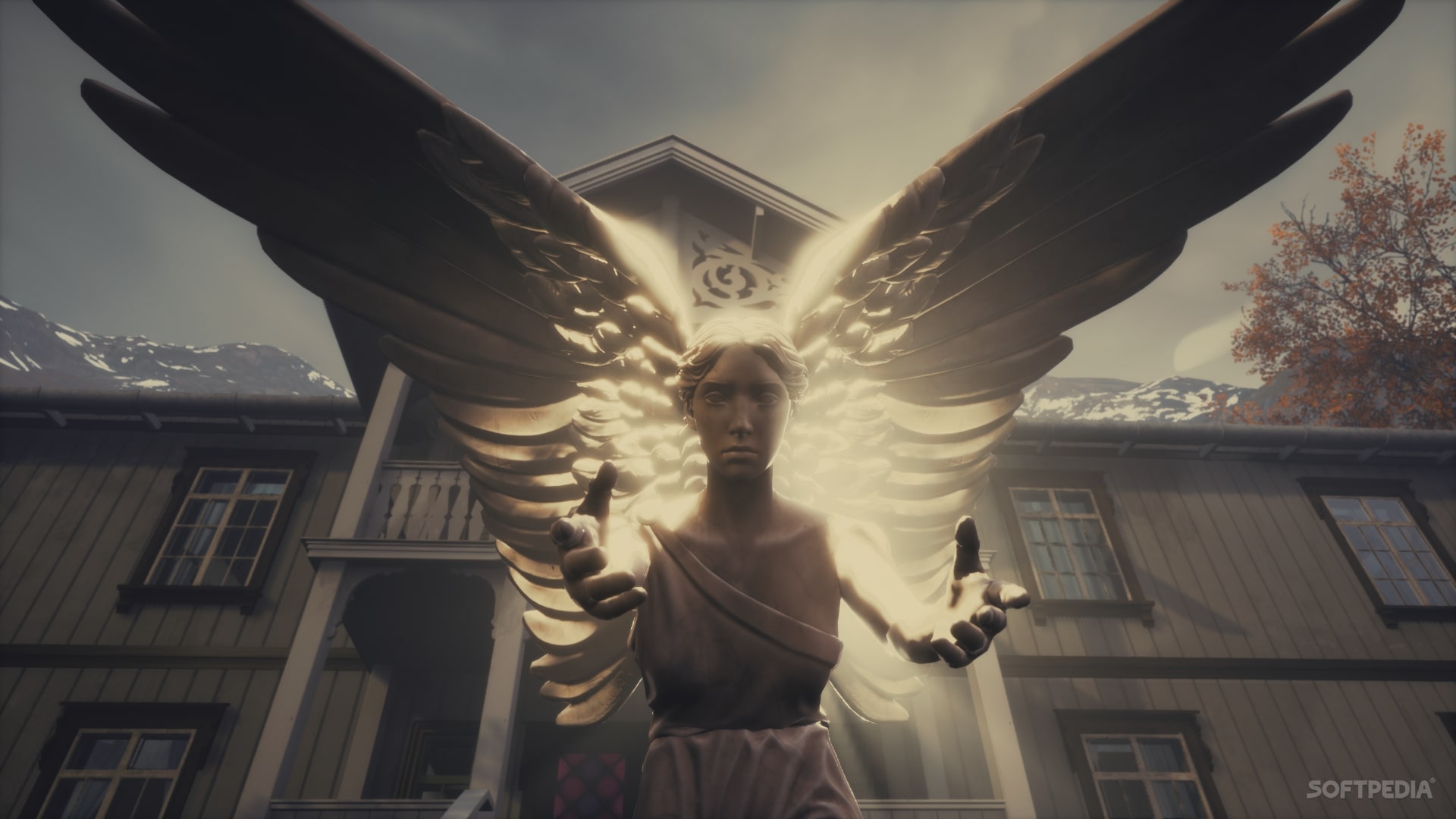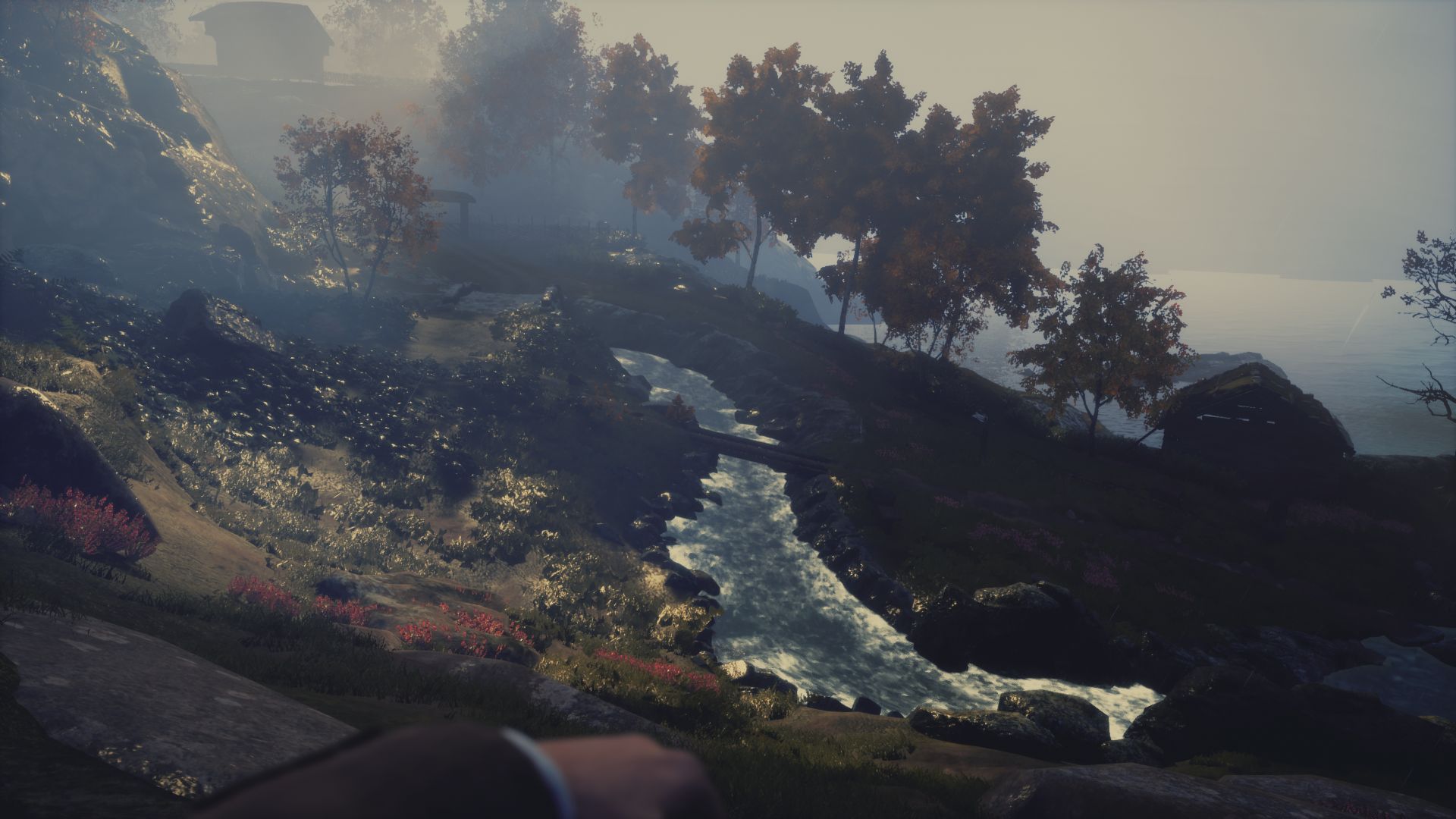


When you’re upstairs in a house you can hear creaking downstairs. You’re never quite sure if something supernatural is going on or not, because Graavik is empty but it feels like it’s stuffed to the creepy gills with ghosts.

There’s a sense that you have all the time in the world, and the map is small enough that you can approach everything in an unhurried way, though sometimes I did get the spine-tingling feeling that I wanted to run away and find a solid wall to stand up against. Though as the days pass, he becomes more desperate to find traces of Betty, and more at home with the idea that, er, nobody is coming back. Like the unsexiest kind of vampire, he feels unable to venture anywhere he isn’t invited. Draugen reveals itself to you gradually, and though it’s a very small town your progress is gated through the imaginative and honestly pretty funny means of Teddy’s manners. I’ve not yet talked much about the mystery in this “Fjord Noir” because doing so will be a delicate game of not spoiling anything.
DRAUGEN GAME REVIEW FULL
Their conversations (aside from the opening scene, where the dialogue is the sort of expositional stuff where people say their full names and addresses at each other) are very natural, with throat clearings and slight cross talk, and performed beautifully by Nicholas Boulton and Skye Bennett. She will tell him to look at her when she’s talking, and will not continue until you swing around and do so. Teddy will editorialise letters he reads aloud to Lissie, cutting out bits he thinks are boring or she shouldn’t hear Lissie will shout at him for caring too much about Betty and not enough about anyone else. Lissie can alternate between being wise and calm or having sudden flares of anger, with a dickhead streak wide enough to drive a Range Rover through. Teddy is constantly worried about breaking the rules, or slippery mud, and behaves in a very grown-up way whilst fighting bouts of nerves and anxiety. The relationship between the two is a big tentpole for the game, and it could probably keep the whole tent up by itself.

Tea is “noodle juice”, Teddy is variously “old bean”, “old sport” or “a wet blanket.” It’s sort of like if George from The Famous Five read The Great Gatsby and got super into it, but I really liked Lissie, and the melancholy stuffed shirt that is Teddy. She constantly spouts theories on what happened to everyone (maybe they’re invisible, maybe they’re ghosts, maybe they all turned into pebbles) as well as 1920s slang. She wakes up early every morning, climbs trees, practises handstands, and chastises Teddy for ever getting scared by, for example, the sudden slam of a door in the wind. Lissie is remarkably unperturbed by it all. And yet the telegraph has been broken for months and the ferry doesn’t come any more, and also now everyone is missing. Everyone chopped their own wood, and walked up and down the lovely beach surrounded by beautiful mountains. A handful of single-story wooden houses with mossy roofs are supplemented by a local store, a church, some fishing huts, and two big farm houses that belong to the two most prosperous families. The village in question is Graavik in Norway, tiny and picturesque but nevertheless isolated and creepy, one imagines, even when people were actually living there. The pair is actually there to try to find Teddy’s sister Betty, an investigative journalist who came to the village for unknown reasons. Serious intellectual artist type Teddy and his 17-year-old tomboy ward Alice (aka Lissie) figure out what the heck is going on, old bean, by exploring, finding letters, and putting together clues. Jeeze, 1923, be more of a confusing post-war nightmare, why don’t you?ĭraugen is partly a first-person investigate-em-up and partly a meditation on loneliness. Imagine getting a letter confirming you’re going to stay with someone, sending a letter back, and then travelling for an actual month just to get there.Īnd then when you turn up the entire village is mysteriously empty, and you have to spend a week sleeping on the sofa downstairs because you’re too polite to go upstairs to the guest room in your hosts’ vacant home without an invite. In this case, the 20s seem to have been an absolute waste. Draugen has definitely reaffirmed my belief that any era before the present was a more annoying time to be alive.


 0 kommentar(er)
0 kommentar(er)
